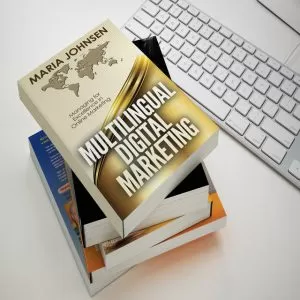
Why SEO Still Matters
Why SEO Still Matters? In recent years, artificial intelligence (AI) tools like ChatGPT, Jasper, and SurferSEO have become widely popular among content creators and digital marketers. Many influencers and YouTube personalities have begun to claim that traditional search engine optimization (SEO) is no longer necessary, thanks to the capabilities of AI. However, this perspective is often misleading and oversimplified. While AI can be a powerful asset in the digital marketing toolkit, it cannot replace the comprehensive approach that SEO offers. Let’s dive into why SEO remains essential, even in the age of AI, and how these two strategies can effectively complement one another.
SEO Still Matters? AI Tools Are Not a Replacement for SEO
A common misconception promoted by YouTubers and influencers is that AI tools can handle all aspects of content creation and optimization, making traditional SEO obsolete. They argue that with the right AI platform, businesses can generate high-quality content and rank well on search engines without the need for any manual SEO work. This is a significant oversimplification.
AI tools are designed to aid in content generation, but they lack the full capabilities needed to execute a comprehensive SEO strategy. While they can help with drafting content, they do not account for other critical elements of SEO, such as:
- Technical SEO: This involves optimizing a website’s backend elements like site speed, mobile-friendliness, and structured data, which are crucial for search engine rankings.
- Backlink Building: Establishing a strong backlink profile is essential for credibility and authority in search engines. AI tools do not perform outreach or build relationships for backlinks.
- User Experience (UX): Google’s algorithm heavily factors in user experience metrics such as bounce rate, time on site, and navigation ease. AI cannot directly influence these elements, as they require thoughtful design and user-focused content strategies.
SEO Still matters because, If you only use AI, it falls short in managing the full scope of SEO.
The Clickbait Phenomenon and Misleading Claims
YouTube creators and digital marketing influencers often use sensationalist titles like “SEO is Dead! Use AI Instead” to grab viewers’ attention and boost engagement. These claims are primarily intended to generate views rather than provide an accurate representation of current digital marketing practices. Although these clickbait strategies can be effective for drawing attention, they often mislead audiences about the real capabilities of AI.
The reality is that AI tools can assist with aspects of SEO, such as keyword research and content ideation, but they do not render SEO obsolete. Instead, AI should be viewed as a supplementary tool that enhances the overall SEO process. By leveraging AI for tasks like content drafts and preliminary research, marketers can save time, but they still need to apply traditional SEO techniques to ensure that the content ranks well and attracts organic traffic.
Why SEO Still Matters? Cause AI Content Still Requires SEO Optimization
Even if content is generated using AI, it must still follow SEO best practices to perform well in search engine rankings. Here’s why:
- Search Intent Alignment: AI-generated content may not always align perfectly with the search intent of users. It requires careful optimization to ensure it meets the needs of potential visitors.
- Meta Tags and Headings: Titles, meta descriptions, and headings need to be optimized manually to reflect targeted keywords and attract clicks.
- Content Relevance and Structure: AI can generate text, but it does not guarantee that the content will be organized in a way that search engines and users find relevant and engaging. Proper structuring is vital for readability and SEO.
Ultimately, search engines continue to rely on established ranking signals like keywords, backlinks, user engagement, and on-page optimization. AI tools can expedite content creation but cannot fully replace the optimization required to achieve high rankings.
Why SEO Still matters? Because Search Engine Algorithms Still Prioritize SEO Factors
Search engine algorithms, particularly those used by Google, are continually updated to enhance the quality of search results. Recent updates, such as the Helpful Content Update and Core Web Vitals, emphasize factors like user experience, page speed, and content quality. These updates underscore the importance of traditional SEO elements:
- User Experience (UX): Core Web Vitals focus on aspects like loading speed, interactivity, and visual stability, which are crucial for ranking well. AI does not address these technical requirements.
- Quality and Relevance: The Helpful Content Update aims to promote original, high-quality content that meets user needs. AI-generated content, if not properly curated, can often be generic or lack depth, which may not meet Google’s quality standards.
These algorithm updates indicate that search engines still prioritize factors that fall squarely under the domain of SEO, reinforcing its importance in digital marketing.
AI Without SEO Leads to Poor Results That’s Why SEO Still Matters
Relying solely on AI for content creation without applying SEO principles can result in poor outcomes. Here are some potential pitfalls:
- Mismatched Search Intent: Content generated purely by AI might fail to address the specific needs of users, leading to lower engagement and higher bounce rates.
- Lower Rankings: Without proper keyword optimization, AI-generated content may struggle to rank well, resulting in reduced visibility.
- Risk of Penalties: Google’s algorithms are designed to detect and penalize low-quality or duplicate content. Over-reliance on AI could lead to the production of thin, repetitive content, putting websites at risk of penalties.
The most effective digital marketing strategies integrate both AI tools and SEO techniques. AI can be an excellent resource for speeding up content creation, performing keyword research, and generating ideas, but it should not replace the detailed work involved in SEO. By combining the strengths of AI with the tried-and-true methods of SEO, businesses can create a more robust approach to digital marketing.
SEO Still Matters and the claim that SEO is unnecessary because of AI is a misconception. Instead, marketers should recognize that AI and SEO are complementary forces that, when used together, can significantly enhance content visibility and drive organic traffic. Embracing both will yield the best results in the dynamic and competitive landscape of digital marketing.
 Multilingual Digital Marketing: Managing for Excellence in Online Marketing
Multilingual Digital Marketing: Managing for Excellence in Online Marketing
ISBN: 978-1542831994
Hard Copy: here
 This book simplifies SEO, making it accessible and actionable for everyone, drawing on my experience working on over 7500 projects since 2008. Covering everything from keyword optimization to advanced strategies, the book equips readers with practical tools and insights to succeed in the ever-evolving world of SEO.
This book simplifies SEO, making it accessible and actionable for everyone, drawing on my experience working on over 7500 projects since 2008. Covering everything from keyword optimization to advanced strategies, the book equips readers with practical tools and insights to succeed in the ever-evolving world of SEO.



